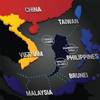A lawyer for Hanjin Shipping Co Ltd , the failed South Korean container carrier, said on Thursday a U.S.-bound vessel was held "hostage" by disputes over payments, adding to the struggles in getting $14 billion of cargo off its ships stranded at sea.
"There is no clear visibility yet on what will happen with this business," Hanjin lawyer Ilana Volkov said at a hearing, when asked by U.S. Bankruptcy Judge John Sherwood whether Hanjin was liquidating.
Hanjin, the world's seventh-largest container line, filed for bankruptcy last month, leaving more than 100 ships and their cargo at sea and threatening to snarl U.S. freight traffic as the year-end shopping season approaches.
Some ships chartered to Hanjin have been sold and more are up for sale.
Last week, Hanjin said a Korean judge authorized $10 million to pay tug operators, ports and cargo handlers to unload four of its U.S.-bound vessels.
Since then, the Hanjin Boston, Hanjin Greece and Hanjin Gdynia have begun to unload. But the fourth ship, the Hanjin Jungil, remains at sea off the coast of California, according to the Marine Exchange of Southern California.
"We're negotiating with every service provider and they are saying 'I'm not going to let this ship berth,'" said Volkov at the Newark, New Jersey hearing. "My client is being held hostage."
She told the court that the Korean court had postponed hearing Hanjin's request to authorize another $50 million that would allow at least four more Hanjin ships to unload U.S. cargo.
Hanjin still has at least 10 U.S.-bound ships, although Volkov said some ships may not have picked up U.S.-bound cargo.
Cargo owners such as consumer products maker Dorel Industries Inc and the U.S. unit of musical instrument maker Yamaha Corp complained they were the hostages.
They said they were forced to make additional payments to get their cargo or were forced to retrieve it from the wrong location.
"This could destroy American businesses," said Alan Brody, a lawyer for Yamaha Corp of America.
Darren Azman, an attorney for Bermuda-based container owner Textainer Group Holdings Ltd, said Hanjin rejected leases on its 20,000 containers but failed to return the boxes to Asia as required.
However, the judge balked at Azman's suggestion that Textainer could force cargo owners to pay to return Hanjin's containers to Asia to get their goods.
"I will do whatever I can to stop you," said Sherwood.
(Reporting by Tom Hals, editing by Peter Henderson and Bernard Orr)










